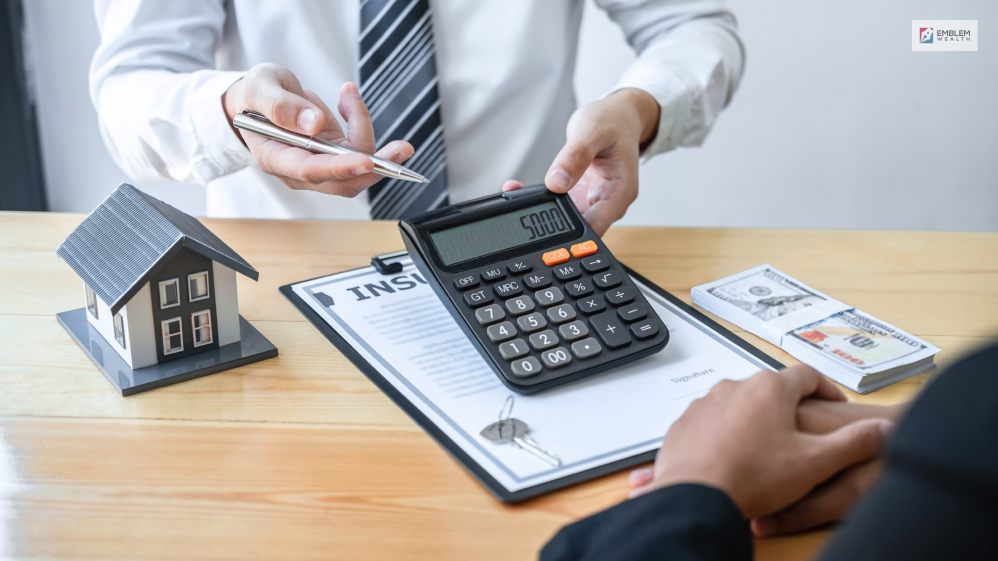Do Renters Pay Property Tax? – Here’s What You Need To Know

Do renters pay property tax in the USA? In general cases, renters do not directly pay property tax in the USA. Here, the owner of the property is liable for the tax bill payment. However, renters indirectly contribute to the property tax with the payment of the rent. Generally, landlords include the property tax within the rent, in addition to other expenses as well as profit. After that, the owner of the property pays the government tax.
In this article, you will find out whether renters pay property taxes and why. Apart from that, you will also learn some of the major aspects of property taxes in general. Furthermore, you will also learn the types of taxes that renters pay in general and the taxes that they do not pay. Next up, this article will also provide you with information about the taxation methods for rental income. Hence, to learn more, read on through to the end of the article.
What Is Property Tax? – A General Overview

According to Investopedia,
“A property tax is an annual or semiannual charge levied by a local government and paid by the owners of real estate within its jurisdiction. Property tax is an ad-valorem tax, meaning the amount owed is a percentage of the assessed value of the real estate. Property tax receipts are the main source of revenue for most local governments in the U.S.”
As per property laws, the government uses the income from property rent taxes to fund public bodies like schools, police, fire departments, roads, maintenance, water, libraries, etc. The main focus of these property taxes is to use the money for public purposes for the benefit of people and communities.
Commonly, a property tax is a tax that the owner of the property pays on land structures, houses, etc., which are counted as immovable possessions. Apart from that, there are some local bodies that assess property taxes on your movable properties, such as cars, vehicles, and equipment.
Here, how much an owner of a property pays depends a lot on the property’s assessed value. However, in this case, a property can be real estate or any individual possession as well. In this case, you can see that property tax revenue is the primary funding source for local services in the United States. Meanwhile, how much a property owner pays as property tax can vary based on the location of the property across the United States.
How Does Property Tax Work?

Any individual, business, or legal entity can pay a property tax. A property tax comes under the category of regressive taxes. This means that despite the taxpayer’s income, they have to pay the same tax rate. Hence, the burden of paying the tax falls mostly on the low-income taxpayers.
If you want to rent your property, you have to pay your taxes based on the value of the property that you own. This might include land, structures, and buildings. Apart from that, there are some other jurisdictions that require taxes from personal properties (like cars and boats) as well. Here, based on the jurisdiction that a property falls into and the type of property, the rate of the property tax varies.
Also, the United States is a member of the Organization for Economic Co-operation and Development (OECD). In most OECD countries, the taxes on immovable properties represent a low amount of federal revenue. The biggest portion of the federal revenue comes from income taxes and value-added taxes. Also, the average property tax rate in the United States is higher than in various European Countries.
Property Tax: How To Calculate It?

You can determine the payable property tax if you multiply the property tax rate by the current market value of the property. In addition to that, most tax authorities annually recalculate the tax that an individual or business needs to pay.
NerdWallet claims –
“To determine your property tax rate, your home’s value is typically multiplied by the established property tax rate. Your home’s assessed value will likely be less than its market value. By how much less will vary by location, but it’s common. The county may have many ways to detect changes in your home’s value, including inspections, permit applications from a remodeling project, reports from neighbors or regular updates.”
The government basically levies property taxes on real properties. What a real property is depends on the state where you come from. Generally, real property includes land, buildings, and structures that are fixed.
Ultimately, the municipal government (local government) of an area determines the tax rate of a particular property in a particular area. There is a tax assessor in the local government who evaluates local property.
Here, the tax assessor also calculates property taxes on the basis of current fair market values. This value also helps in assessing the value of a home or any other property in a given location. Hence, once you learn its value, you can consider elevating the value of your property.
Do Renters Pay Property Tax?

No, renters do not pay any property tax directly. The property owner is liable to pay the taxes on the value of the property to the IRS (Internal Revenue Service). In general, the owner of a property includes the taxes of the property within the rate of the rent. Hence, along with the profit on short-term rental properties, property owners also include the taxes on the rent.
The advantage of the renter here is that the individual does not need to worry about taxes or fill out tax forms. Here, the renter just pays the rental amount to the owner of the property or the individual/ entity that manages the rental property.
Apart from that, the renter also has other advantages too. Here, the owner of the property is responsible for taking care of all the property’s expenses. These expenses include taxes, insurance, maintenance, repairs, etc.
Hence, as a landlord, it is essential for you to estimate all your expenditures beforehand. Here, you must think accordingly, such that all the payments that you anticipate come within the rent structure. Furthermore, you will also need to think beforehand about unexpected occurrences.
What Are the Costs that Renters Do Not Pay Directly?

Investopedia explains –
“Renters pay a monthly fee to live in someone else’s property, while homeowners pay a monthly mortgage to eventually own the property in which they live. But those mortgage payments are just the tip of the financial iceberg. That’s on top of the down payment you need to secure your loan. There are also property taxes, as well as maintenance and other costs, many of which continue even after the mortgage is paid off.”
Your property is one of your biggest assets. Hence, if you want to become a homeowner and rent your property, there are certain costs that you will have to pay. Here are some of the major costs that property owners are responsible for (and not renters/tenants):
1. Property Taxes
As already discussed, you can evaluate your home’s property taxes based on its current value. However, this value is variable, increases or decreases over time, and affects the value of your property. Furthermore, the location and structure of your home also determine the amount of property tax that you need to pay to the IRS.
According to NerdWallet,
“Failing to pay your property taxes can result in the taxing authority placing a tax lien on the property. A tax lien is a legal claim against property or financial assets you own or may have coming to you. It’s not a seizure of your assets, but it is a claim on them. If you sell the asset, the government could be entitled to some or all of the proceeds.”
2. Mortgage Interest
The homeowner also has to pay the mortgage interest for the house within the amortization period. Basically, it is the duration of the mortgage, and the mortgage interest amount depends on it. However, mortgage rates are either fixed (same interest throughout) or adjustable (fluctuates over the amortization period).
3. Home Maintenance
All the maintenance tasks of the home are the job of the homeowner and not the tenant. In this case, the homeowner uses the 1% rule. Here, the homeowner budgets at least 1% of the purchase value of the home for maintenance purposes.
4. Real Estate and Legal Fees
If you buy or sell a property, there are certain associated costs that you need to consider. The real estate fees and other legal fees typically come as extra payments to the price of the property. In these cases, since these are complex topics, it is essential to take the help of a real estate agent and a lawyer for real estate and legal matters, respectively.
5. Home Insurance
Renters mainly pay for renter’s insurance. However, they are not responsible for paying home insurance. Through their rent, renters typically cover the contents of the property. On the other hand, home insurance is about the physical structure of the property, which is quite expensive.
What Are the Taxes to Pay on Rental Income?

According to Rocket Mortgage,
“The IRS treats rental income as regular income for tax purposes. This means you’ll need to add your rental income to any other income sources you may have when you file your taxes. Keep in mind that you may be able to deduct certain qualified expenses to decrease what you owe at the end of the year. The ability to deduct qualified expenses is one of the many tax benefits that come with owning rental properties.”
However, once you account for the deductions, your rental income adds to your regular income. Hence, if you want to add value to your rental property, it is essential for you to learn about the taxes that exist on rental income.
Some Examples of Rental Income
Once you account for your rental income, you will have to include more value than what you receive through your monthly check. Here are some of the major payments that might or might not count as a rental income:
1. Rent Payments in Advance
Rental income also consists of those payments that your tenant pays in advance. For example, if your tenant pays you for an upcoming month in advance, that also counts as a rental income.
2. Security Deposits
If your tenant pays you a security deposit in advance, which you might have to return at the end of the lease, then you must not count it as a rental income. However, if you keep a portion of this amount for damages, then the value counts as an income.
3. Regular Rent Payments
This is obvious, as the monthly rental payment is surely a rental income and is liable for taxation by the IRS.
4. Payments Due to Lease Cancellation or Termination
If your tenant pays you a fee for lease cancellation or if the tenant terminates the lease and pays you a sum, then that income also counts as rental income.
5. Property or Services Received in Place of Rent
There might be situations when your tenant offers you a service or a property in place of the rental payment. In this case, this payment counts as rental income, and this payment is liable for taxation.
6. Expenses from the Tenant
If your tenant covers extra expenses and then deducts the expenses from the rent, then you must report the cost of those expenses as rental income.
Hence, you can see that any payment or service that you receive from the tenant and keep it counts as rental income.
Wrapping Up
Do renters pay property tax? – You can see that renters do not pay property tax. Here, the homeowner that offers the lease pays the property tax to the taxing authority. However, the owner includes the payment of these taxes as well as profits on the value of the rent. Hence, the renter indirectly pays for the property tax.
Do you have more information on adding the payment of property taxes? Consider sharing them in the comments section below.
Continue Reading:


























Leave A Reply